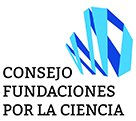One in three people will develop cancer during their lives. Although this disease has hold a prominent place in the scientific forums and meetings, it has rarely been addressed from the perspective of one of those sectors most involved in the care of cancer patients – nursing. For this reason, the Esteve Foundation decided to bring together in its latest Roundtable, the experience of different health professionals in the treatment patient of cancer patients, focusing particularly on the crucial role of nurses.
Twelve very different issues were raised in this meeting, held in Barcelona on the 27th November 2009 and chaired by Rosa Maria Torrens, a former professor at the Vall d’Hebron School of Nursing in Barcelona. The issues raised ranged from the pharmacological treatment of cancer nutritional care to prevention, counseling and rehabilitation. A total of twelve papers, along with the discussion during the day, will be collected in a new Esteve Foundation monograph.
The day of discussion was opened by Ana de Juan, from the Medical Oncology and Palliative Care Service at the Marqués de Valdecilla University Hospital, who presented an update on breast cancer treatment, of which they are 16,000 new cases each year in our country. Despite being the most common malignancy in women, new treatments have dramatically increased life expectancy, but early diagnosis remains key.
Following, Rosario Garcia, from the Medical Oncology Service of theHospital Juan Canalejo of A Coruña, gave an update on one of the most deadly cancers, that of the lung. While admitting the difficulty of being optimistic about such a devastating disease, she discussed some advances in chemotherapy that can increase survival rates of those in advanced stage of the dieseas by up to 28 months.
Following a review of the pharmacological treatments for the two most common cancers, Tarsila Ferro, planning coordinator of the Master Plan of Oncology of Catalonia, focused on the contribution of nursing in cancer patient care. This is a multidisciplinary care ranging from early detection to terminal care, to continuing care of the patient.
Her colleague at the Day Hospital of Oncology, Hematology and Home Care unit of the Hospital Clínic de Barcelona, Jaume Güell, stressed the need to prevent the failure of treatment that is in accordance with conduct protocols and guidelines, and emphasized that nursing care has to adapt to the individual circumstances of each patient.
One of the most important aspects of the process is therapeutic nutritional care, since it is estimated that 80% of cancer patients are malnourished at the time of diagnosis. Emma Camarero, Service of Endocrinology and Nutrition Hospital Clinico Universitario de Santiago de Compostela, highlighted the need for consultations in oncology nutrition to prevent premature death and improve quality of life of patients.
Rafael Galvez, from the Pain and Palliative Care Unit at Virgen de las Nieves Hospital in Granada, focused his presentation on the treatment of cancer pain, highlighting a contradiction: although there are ways to relieve 95% of the pain resulting from cancer, 75% of patients with tumors continue to suffer some kind of pain. Although it is impossible to alleviate it in its entirety, the treatment goal should be to achieve a tolerable or bearable degree of pain for the patient.
Returning to breast cancer treatment, Concepcion Palacio, from the Rehabilitation Service of the Vall d’Hebron University Hospital in Barcelona, talked about lymphedema in rehabilitation and physical therapy after mastectomy with axillary emptying. This type of rehabilitation usually occurs in 25% of cases. In addition to therapy to improve feeling in the arm, it has also become an indespensable psychological help.
During the afternoon session, Neus Gadea described genetic counseling, designed to identify individuals or families with an hereditary predisposition to cancer. From her experience at the Hospital Vall d’Hebron, Barcelona, Gadea focused on the specific contribution of nursing in these types of unit, which focus on collecting information and health education.
The perspective of Francesc Xavier Busquet, in contrast, is that of home care for the terminally ill. Health professionals working in the Program for Home Care and Support Teams (PADES) face a completely different environment than that of a hospital. The patient’s home is sacred and complex, with risks to patients and relatives, disrespectful of science and nonhierarchical. A real challenge.
Meanwhile, Ramon Bayes, professor of psychology at the Autonomous University of Barcelona, decided to turn his presentation into a profound reflection on time and our different perceptions of it. Subjective time, as for patients and relatives, is long, but for health professionals is too short. Hence the importance of the patient getting good information, so that waiting isn’t filled with uncertainty and suffering. “Those who suffer are not the bodies, but the people” is a claim of Cassell that is increasingly taking shape in medicine.
Also from the Autonomous University of Barcelona, Angel Puyol, from the Department of Philosophy, considered bioethical considerations for cancer patients, while Maria Paz Fernandez, coordinator of nursing research at the Catalan Institute of Oncology, closed the session with a review of the research work of oncology nurses.





















